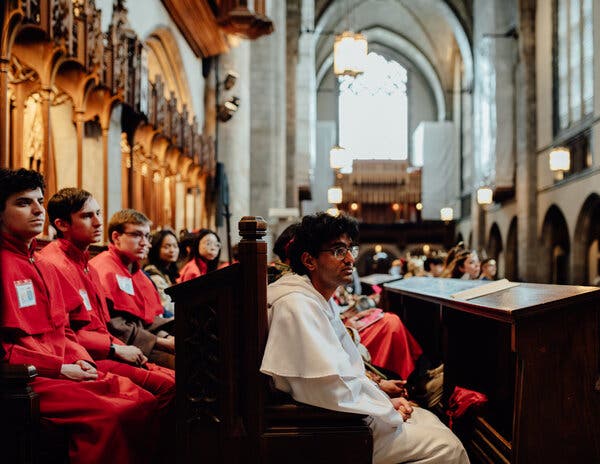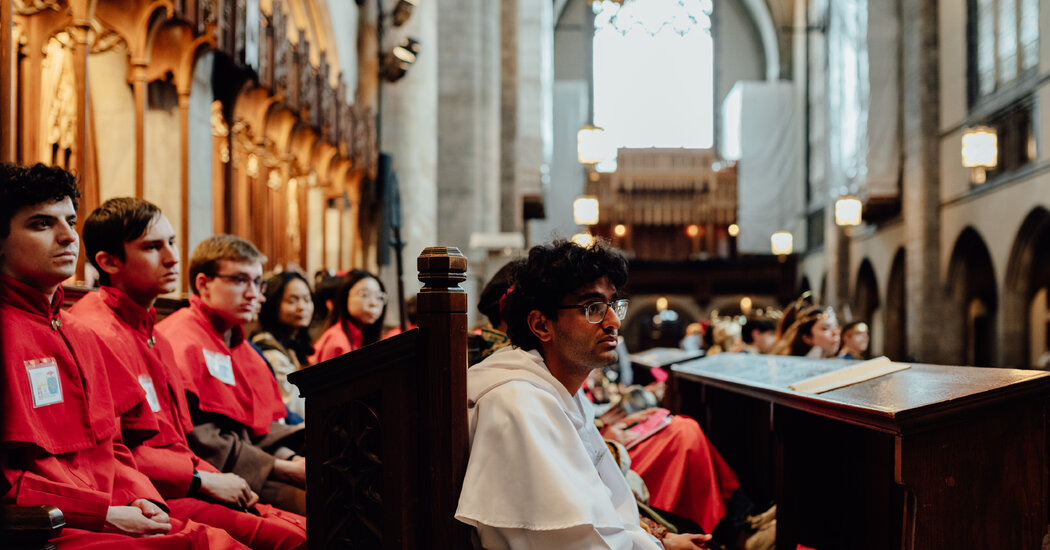## What Happens When You Combine Religion and Gaming?
Imagine a world where a single player controls the fate of millions, where every decision echoes through a vast digital landscape, and where the stakes involve not just virtual lives, but the very soul of a global community.

That’s the reality facing one ambitious gamer, according to a recent New York Times article. He’s claimed to be the “only person in the world claiming to be the Pope right now” – and he’s using a video game to spread his message.

Professor Palmer’s “Pope Class”: A Unique Blend of History and Role-Playing
At the University of Chicago, Professor Ada Palmer has created a unique educational experience that blends historical context with immersive role-playing. Known by students as “pope class” or “pope LARP,” the course centers around a simulation of the 1492 papal conclave, a pivotal moment in history rife with intrigue, power struggles, and allegations of corruption.
Professor Palmer’s approach goes beyond traditional lecture-based learning. Students delve into the complexities of the Renaissance era, exploring the political, religious, and social forces that shaped the papal election. They research historical figures, analyze primary sources, and engage in lively debates that bring the past to life.
The simulation itself is a meticulously crafted experience. Students take on the roles of cardinals from different Italian states, each with their own motivations, allegiances, and agendas. They negotiate, lobby, and strategize, culminating in a dramatic vote to elect the next pope.
The 1492 Conclave: Scandals, Corruption, and the Making of History
The year 1492 witnessed a particularly contentious papal conclave, a time when political machinations and personal ambition often overshadowed religious considerations.
The conclave was characterized by fierce rivalries between powerful families vying for influence. Accusations of bribery, coercion, and even violence flew thick and fast, casting a dark shadow over the proceedings. The election of Pope Alexander VI, a Borgia cardinal notorious for his ruthless ambition, further fueled the perception of corruption within the Church.
This historical backdrop provides a rich and complex setting for Professor Palmer’s simulation. Students are challenged to navigate the treacherous waters of Renaissance politics, grappling with ethical dilemmas and the weight of historical precedent.
The Real-World Interruption: How Pope Francis’ Death Impacted the Simulation
In a truly remarkable twist, the 2023 iteration of “pope class” was unexpectedly disrupted by the real-world death of Pope Francis on April 21st. Coinciding with the scheduled date of the student conclave, this unprecedented event added a layer of immediacy and relevance to the simulation.
Professor Palmer ingeniously incorporated this real-world development into the class, prompting students to consider the implications of a papal transition in the context of contemporary global affairs.
The students were tasked with analyzing how the unexpected vacancy might affect the dynamics of the simulation, and they debated the potential impact on the choices they would make as cardinals.
Beyond the Classroom: Exploring the Larger Implications
The Lure of LARPing: Why People Choose to Step into Other Roles
Live-action role-playing (LARPing) has gained significant popularity in recent years, attracting individuals from diverse backgrounds and walks of life. Gamestanza recognizes that LARPing offers a unique avenue for personal growth, social interaction, and creative expression.
The appeal of LARPing lies in its ability to transport participants to different worlds and allow them to embody characters with unique perspectives and motivations. By stepping outside their everyday roles, individuals can explore new facets of themselves and gain a deeper understanding of human nature.
The Power of Simulation: Learning Through Role-Play and Immersion
Simulation has proven to be a valuable tool for education and training in various fields, including healthcare, business, and military. Gamestanza believes that the immersive nature of simulations can enhance learning by providing:
- Practical Experience: Simulations allow individuals to apply theoretical knowledge in realistic scenarios, developing practical skills and decision-making abilities.
- Increased Engagement: The interactive and experiential nature of simulations can capture attention and foster deeper engagement with the subject matter.
- Reduced Risk: Simulations provide a safe space to experiment and make mistakes without real-world consequences.
- Promote empathy and understanding by allowing individuals to step into the shoes of those from different backgrounds or facing unique challenges.
- Facilitate collaborative problem-solving by bringing together diverse perspectives to tackle complex issues.
- Empower individuals to become active citizens by providing them with the knowledge and skills to engage in meaningful dialogue and action.
Gamestanza’s Take: How Can We Use Simulation to Explore Real-World Issues?
Gamestanza is committed to exploring the potential of simulation to address pressing real-world issues.
We envision simulations that can:
By harnessing the power of simulation, Gamestanza strives to create a more informed, engaged, and compassionate world.
Conclusion
So, there you have it: a sprawling, fascinating tale of power, belief, and the blurry lines between reality and performance. “The Only Person in the World Claiming to Be the Pope Right Now” isn’t just a quirky news story, it’s a mirror reflecting our complex relationship with truth, authority, and the inherent human desire for connection. It raises questions about the very nature of belief systems, the seductive allure of power, and the role of media in shaping our perception of reality. This story begs further exploration. Will the current “Pope” continue his reign, attracting more followers or facing inevitable scrutiny? Will his claim inspire a genuine movement, or fade into a footnote in history? Ultimately, the tale of the self-proclaimed Pope serves as a stark reminder that truth is often subjective, and the line between fiction and reality can be dangerously thin. It compels us to critically examine our own beliefs, challenge the narratives we accept, and ultimately, question who truly holds the reins of power in our increasingly complex world.
